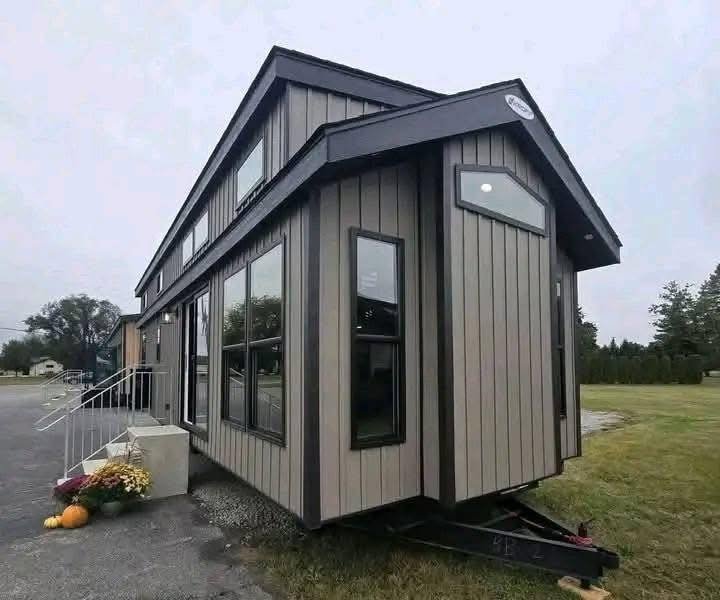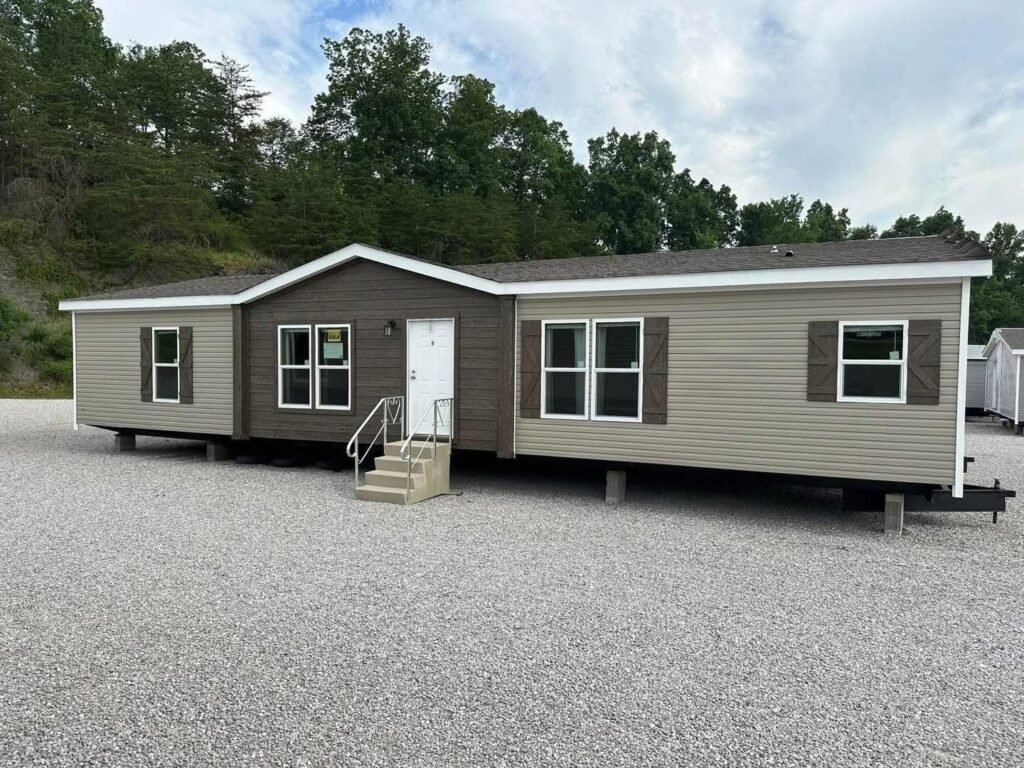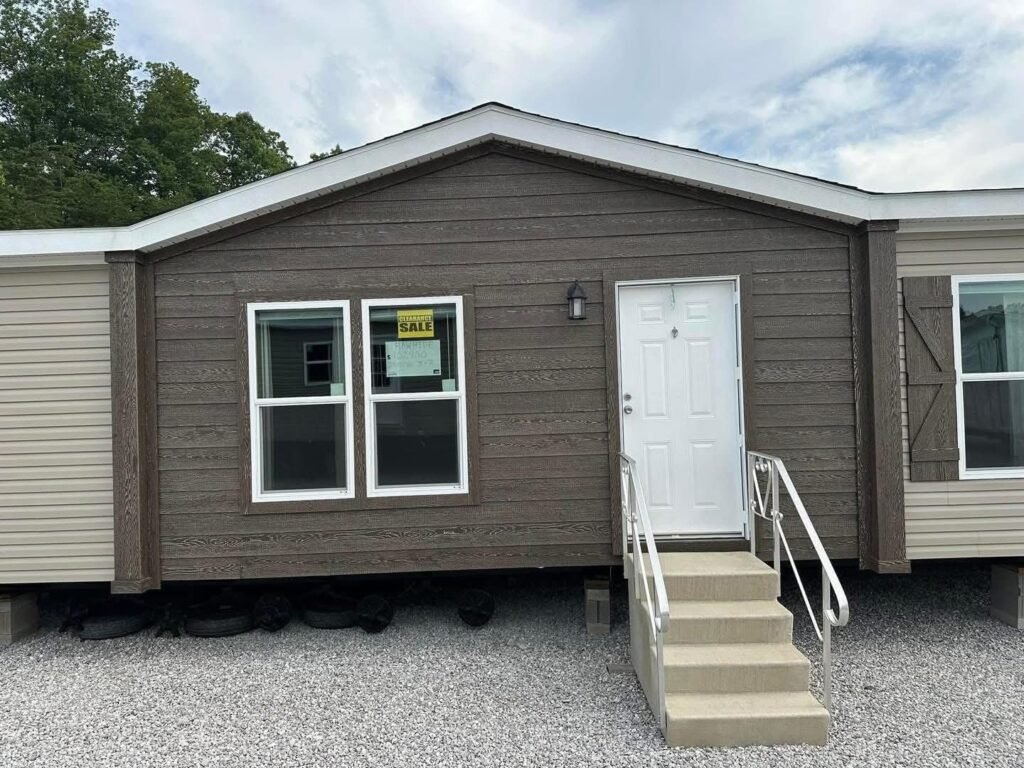Uncategorized
Rent To Own Mobile Homes – Your Path to Affordable Homeownership
Table of Contents
The dream of homeownership has become increasingly challenging for millions of Americans facing rising home prices, strict lending requirements, and the need for substantial down payments. However, rent-to-own mobile homes offer an innovative solution that makes homeownership accessible to people who might otherwise be excluded from the traditional housing market. This alternative path to ownership has gained tremendous popularity, with the rent-to-own housing market experiencing growth of over 15% annually as more families discover its benefits [1]. Rent to own mobile homes
Rent-to-own mobile homes provide a unique opportunity to move into your own home immediately while building equity toward eventual ownership. Unlike traditional rental arrangements where monthly payments provide no ownership benefit, rent-to-own programs allow you to invest in your future while enjoying the stability and pride of living in your own home. This approach is particularly valuable for people with credit challenges, limited savings for down payments, or those who want to test homeownership before making a full commitment.
The mobile home industry has embraced rent-to-own programs as a way to make quality housing accessible to a broader range of buyers. Modern manufactured homes built to HUD standards offer the same comfort, safety, and amenities as traditional site-built homes, but at a fraction of the cost. When combined with flexible rent-to-own financing, these homes provide an affordable path to homeownership that works for real families with real budgets.
Understanding Rent-to-Own Mobile Homes: How the Process Works
The Basic Structure of Rent-to-Own Agreements
Rent-to-own mobile home agreements combine elements of rental contracts and purchase agreements to create a flexible path to homeownership. In a typical arrangement, you select a mobile home from available inventory, make an initial payment that’s usually equivalent to one to three months of rent, and begin making monthly payments that include both a rental component and an equity-building component toward the eventual purchase price.
The key advantage of this structure is that you can move into your chosen home immediately, without waiting for loan approval or accumulating a large down payment. Each monthly payment builds equity in the home, creating a forced savings program that helps you work toward ownership while enjoying the benefits of living in your own space. mobile homes rent to own
Most rent-to-own agreements include a predetermined purchase price and timeline, typically ranging from two to five years. During this period, you have the option to purchase the home at any time by paying the remaining balance, or you can continue making payments until the end of the agreement term, at which point you’ll own the home outright.
Types of Rent-to-Own Programs Available
Traditional Rent-to-Own Programs represent the most common structure, where a portion of each monthly payment goes toward the purchase price while the remainder covers the rental component. These programs typically allocate 20-40% of each payment toward equity building, with the exact percentage specified in your agreement.
Lease-Purchase Agreements create a legal obligation to purchase the home at the end of the lease term, rather than just an option to buy. These agreements often offer more favorable terms because the seller has certainty that the sale will be completed, but they also create a binding commitment for the buyer.
Rent-to-Own with Down Payment Assistance programs help buyers accumulate funds for traditional financing by setting aside a portion of monthly payments in a separate account that can be used as a down payment for conventional financing. This approach allows buyers to transition to traditional homeownership with better loan terms.
Graduated Payment Programs start with lower monthly payments that increase over time, making homeownership accessible to buyers whose income is expected to grow. These programs are particularly popular with young professionals or people who are building their careers. rent to own mobile homes near me

Legal Protections and Consumer Rights
Rent-to-own agreements are regulated by state laws that provide important protections for consumers. These regulations typically require clear disclosure of all terms, including the total cost of the home, the portion of payments going toward purchase, and the consequences of default or early termination.
Most states require that rent-to-own agreements clearly specify the purchase price, payment allocation, and timeline for ownership transfer. Some states also provide cooling-off periods that allow buyers to cancel agreements within a specified timeframe without penalty, and many require that sellers maintain the property and provide clear title upon completion of the agreement.
Understanding your rights under local rent-to-own laws helps ensure that you enter into agreements that are fair and legally enforceable. Many rent-to-own companies provide detailed explanations of these protections as part of their customer education programs.
Benefits of Rent-to-Own Mobile Homes vs. Traditional Home Buying
Immediate Occupancy Without Traditional Financing
The most significant advantage of rent-to-own mobile homes is the ability to move into your own home immediately, without the delays and uncertainties of traditional mortgage approval. While conventional home purchases can take 30-60 days to close and require extensive documentation, credit checks, and appraisals, rent-to-own programs often allow you to move in within days of agreement approval.
This immediate occupancy benefit is particularly valuable for families who need housing quickly due to job relocations, lease expirations, or other time-sensitive circumstances. Rather than settling for temporary housing or extending expensive month-to-month rental agreements, rent-to-own programs provide immediate access to permanent housing solutions.
The streamlined approval process for rent-to-own programs focuses on your ability to make monthly payments rather than your credit history or debt-to-income ratios. This approach makes homeownership accessible to people who might wait years to qualify for traditional financing, allowing them to start building equity immediately rather than continuing to pay rent with no ownership benefit.

Building Equity While Living in Your Home
Unlike traditional rental arrangements where monthly payments provide no ownership benefit, rent-to-own programs allow you to build equity in your home with every payment. This equity building creates a forced savings program that helps you accumulate wealth while enjoying the stability and pride of homeownership.
The equity-building component of rent-to-own payments typically ranges from 20-40% of your monthly payment, depending on the specific program terms. Over the course of a typical three-year rent-to-own agreement, this can result in substantial equity accumulation that provides a strong foundation for your financial future.
This equity building is particularly valuable for people who struggle with traditional savings programs or who want to ensure that their housing payments contribute to their long-term financial goals. Rather than paying rent that provides no future benefit, rent-to-own payments create tangible value that belongs to you.
Flexibility and Reduced Risk
Rent-to-own programs provide flexibility that traditional home purchases cannot match. If your circumstances change during the rental period, you typically have options that aren’t available with conventional mortgages. Many programs allow early purchase if your financial situation improves, and some provide exit strategies if you need to relocate or can no longer afford the payments.
This flexibility reduces the risk associated with homeownership by allowing you to “test drive” both the home and the community before making a final commitment. You can experience the reality of homeownership, including maintenance responsibilities and community living, before deciding whether to complete the purchase.
The reduced risk extends to financial considerations as well. If property values decline or your financial situation changes, you’re not locked into a mortgage that might exceed the home’s value. This protection is particularly valuable in uncertain economic times when traditional homeowners might find themselves underwater on their mortgages.
Qualifying for Rent-to-Own Mobile Home Programs
Income and Employment Requirements
Rent-to-own mobile home programs typically have more flexible qualification requirements than traditional mortgages, focusing primarily on your current ability to make monthly payments rather than your credit history or debt-to-income ratios. Most programs require stable employment and sufficient income to cover the monthly payments, but the specific requirements are often more accommodating than conventional lending standards.
Typical income requirements range from 2.5 to 3 times the monthly payment amount, compared to the stricter debt-to-income ratios required for traditional mortgages. This more flexible approach recognizes that people with steady employment and reasonable income can successfully manage homeownership even if their credit history or current debt levels wouldn’t qualify them for conventional financing.
Employment stability is generally more important than income level, with most programs preferring applicants who have been with their current employer for at least six months to a year. Self-employed applicants may need to provide additional documentation of income stability, but many programs are willing to work with entrepreneurs and independent contractors who can demonstrate consistent earnings.
Credit Requirements and Alternatives
One of the most attractive features of rent-to-own mobile home programs is their flexibility regarding credit requirements. While traditional mortgages typically require credit scores of 620 or higher, many rent-to-own programs accept applicants with credit scores as low as 500, and some programs don’t require credit checks at all.
For applicants with credit challenges, rent-to-own programs often focus on the reasons for past credit problems and your current financial stability rather than just your credit score. Programs may be particularly accommodating for people whose credit problems resulted from medical bills, divorce, job loss, or other circumstances beyond their control.
Some programs offer credit improvement assistance as part of their services, helping buyers improve their credit scores during the rental period so they can qualify for traditional financing when they’re ready to complete the purchase. This support can include credit counseling, debt management advice, and guidance on building positive credit history.
Initial Payment and Financial Preparation
Most rent-to-own programs require an initial payment that’s typically larger than a traditional rental security deposit but smaller than a conventional down payment. This initial payment usually ranges from one to three months’ worth of payments and serves multiple purposes: it demonstrates your commitment to the program, provides the seller with some protection against default, and begins your equity building immediately.
The initial payment requirements are often flexible, with some programs allowing you to spread the payment over several months or accept partial payments to help you get started. This flexibility makes rent-to-own programs accessible to people who don’t have large amounts of cash available but can manage higher monthly payments.
Financial preparation for rent-to-own programs should include budgeting for the monthly payments, initial payment, and ongoing homeownership costs like utilities, maintenance, and insurance. Many programs provide financial counseling to help buyers understand these costs and prepare for successful homeownership.
Choosing the Right Rent-to-Own Mobile Home
Evaluating Home Quality and Condition
When selecting a rent-to-own mobile home, it’s crucial to thoroughly evaluate the quality and condition of the home since you’ll potentially be living in it for several years and eventually owning it. Modern manufactured homes are built to strict HUD standards, but the age, maintenance history, and specific features of individual homes can vary significantly.
Key factors to evaluate include the age and manufacturer of the home, as newer homes from reputable manufacturers typically offer better warranties and more modern features. The condition of major systems like HVAC, plumbing, and electrical should be professionally inspected, and you should understand what repairs or maintenance might be needed during your occupancy.
The floor plan and layout should meet your current and anticipated future needs, considering factors like family size, lifestyle requirements, and accessibility needs. Since you’ll potentially be living in the home for several years, it’s important to choose a layout that will remain suitable as your circumstances change.
Understanding Community Rules and Amenities
Most rent-to-own mobile homes are located in mobile home communities that have specific rules, regulations, and amenities that will affect your living experience. Understanding these community factors is essential since they’ll impact your quality of life and the long-term value of your investment.
Community amenities might include swimming pools, clubhouses, fitness centers, playgrounds, and organized social activities. These amenities can significantly enhance your living experience and provide value that justifies higher monthly payments. However, they may also come with additional fees or maintenance assessments that should be factored into your budget.
Community rules typically address issues like home maintenance standards, pet policies, guest restrictions, and noise regulations. While these rules help maintain property values and ensure a pleasant living environment, they also create obligations that you’ll need to follow throughout your occupancy and ownership.
Negotiating Terms and Conditions
Rent-to-own agreements often include negotiable terms that can be adjusted to better meet your needs and circumstances. Key negotiable elements might include the monthly payment amount and allocation between rent and equity, the timeline for completing the purchase, the final purchase price, and early purchase incentives or penalties.
Understanding which terms are negotiable and how they affect your overall cost and timeline helps you structure an agreement that works for your specific situation. Some sellers may be willing to adjust terms to accommodate your budget or timeline, particularly if you’re a well-qualified buyer or if the home has been on the market for an extended period.
Professional guidance from real estate attorneys or housing counselors can be valuable when negotiating rent-to-own terms, helping ensure that you understand all aspects of the agreement and that the terms are fair and reasonable.

Financial Considerations and Cost Analysis
Total Cost of Ownership Comparison
When evaluating rent-to-own mobile homes, it’s important to calculate the total cost of ownership and compare it to alternative housing options. The total cost includes all monthly payments over the agreement term, the initial payment, and any additional fees or costs associated with the program.
While rent-to-own programs typically cost more than purchasing the same home with cash or conventional financing, they often cost less than the combination of renting plus saving for a down payment over the same period. The key is to compare the total cost to realistic alternatives given your current financial situation and credit status.
Consider factors like the opportunity cost of the initial payment, the value of immediate occupancy versus waiting to qualify for traditional financing, and the benefits of building equity versus continuing to rent. This comprehensive analysis helps determine whether rent-to-own programs provide good value for your specific circumstances.
Tax Implications and Benefits
The tax treatment of rent-to-own payments can be complex, as the IRS may treat different portions of your payments differently depending on the specific structure of your agreement. Generally, the rental portion of your payments is not tax-deductible, while the equity-building portion may qualify for homeownership tax benefits once you take title to the property.
Some rent-to-own agreements are structured to provide immediate tax benefits by treating the buyer as the owner for tax purposes from the beginning of the agreement. This structure can provide access to homeowner tax deductions like mortgage interest and property tax deductions, even during the rental period.
Consulting with a tax professional who understands rent-to-own agreements helps ensure that you understand the tax implications of your specific program and can take advantage of any available benefits while avoiding potential complications.
Insurance and Protection Considerations
Insurance requirements for rent-to-own mobile homes may differ from traditional rental or ownership situations, and understanding these requirements is important for protecting your investment and meeting your agreement obligations. Most programs require renters insurance to protect personal property and provide liability coverage, while the seller typically maintains property insurance on the home itself.
Some rent-to-own agreements require buyers to obtain homeowner’s insurance once they take title, while others allow the transition to occur at the time of final purchase. Understanding these requirements helps you budget for insurance costs and ensures that you maintain appropriate coverage throughout the agreement period.
Additional protection considerations might include warranty coverage on appliances and systems, maintenance responsibilities during the rental period, and protection against seller default or bankruptcy. Many reputable rent-to-own companies provide additional protections beyond what’s legally required to ensure customer satisfaction and program success.
Common Challenges and How to Avoid Them
Understanding Agreement Terms and Obligations
One of the most common challenges with rent-to-own programs is misunderstanding the terms and obligations of the agreement. These contracts can be complex, with specific requirements for payments, maintenance, insurance, and other responsibilities that differ from traditional rental or purchase agreements.
To avoid problems, carefully review all agreement terms with a qualified professional before signing, ask questions about anything you don’t understand, and keep detailed records of all payments and communications. Understanding your obligations helps prevent defaults and ensures that you can successfully complete the program.
Pay particular attention to clauses regarding default, early termination, maintenance responsibilities, and the process for completing the final purchase. These provisions can significantly affect your experience and financial outcome, so it’s important to understand them fully before committing to the program.
Maintaining the Property During the Rental Period
Rent-to-own agreements typically require buyers to maintain the property as if they were already owners, which means taking responsibility for routine maintenance, minor repairs, and property upkeep. This responsibility can be challenging for people who are accustomed to rental situations where landlords handle maintenance issues.
Successful rent-to-own buyers develop good maintenance habits early in the agreement period, including regular HVAC maintenance, prompt attention to minor repairs, and proper care of appliances and systems. This proactive approach prevents small problems from becoming major expenses and helps maintain the property’s value.
Many rent-to-own companies provide maintenance guidance and resources to help buyers understand their responsibilities and develop good homeownership habits. Taking advantage of these resources helps ensure that you’re prepared for the maintenance aspects of homeownership.
Planning for the Final Purchase
The ultimate goal of most rent-to-own programs is to complete the purchase and take full ownership of the home. Planning for this transition throughout the rental period helps ensure that you’re prepared when the time comes to finalize the purchase.
This planning might include improving your credit score to qualify for traditional financing, saving additional funds for closing costs or down payments, and understanding the process for completing the purchase. Many buyers use the rental period to prepare for traditional financing, which can provide better terms for the final purchase.
Some rent-to-own programs provide assistance with the final purchase process, including connections to lenders, help with paperwork, and guidance through the closing process. Taking advantage of these services helps ensure a smooth transition to full homeownership.
Success Stories and Real-World Examples
First-Time Homebuyers Finding Success
Sarah and Mike, a young couple from Texas, had been renting apartments for five years while trying to save for a down payment on a home. Despite steady employment, they struggled to accumulate enough savings while paying high rent costs. A rent-to-own mobile home program allowed them to move into a three-bedroom double-wide home with just a $2,000 initial payment.
Over three years, they built $15,000 in equity while living in their own home and improving their credit scores. When they completed the purchase, they had accumulated enough equity to qualify for traditional financing at favorable rates, and they now own their home outright with a conventional mortgage that costs less than their previous rent payments.
Credit Recovery Through Homeownership
Jennifer, a single mother from Florida, faced credit challenges after a divorce that included medical bills and other financial difficulties. Traditional mortgage lenders wouldn’t approve her for financing, but a rent-to-own program recognized her stable employment and ability to make monthly payments.
During her two-year rent-to-own period, Jennifer worked with credit counselors to improve her credit score while building equity in her home. She was able to complete the purchase with seller financing that was later refinanced into a conventional mortgage, achieving her goal of homeownership while providing stability for her children.
Retirement Housing Solutions
Bob and Carol, a retired couple from Arizona, wanted to downsize from their large family home but didn’t want to deal with the complexities of selling their current home and buying another simultaneously. A rent-to-own mobile home in a 55+ community provided the perfect solution.
They were able to move into their new home immediately while taking time to properly market and sell their previous home. The rent-to-own arrangement gave them flexibility to complete the purchase when their old home sold, and they now enjoy maintenance-free living in a community designed for active retirees.
Frequently Asked Questions About Rent-to-Own Mobile Homes
What happens if I can’t complete the purchase?
Most rent-to-own agreements include provisions for situations where buyers cannot complete the purchase. Depending on the specific terms, you might forfeit some or all of your equity payments, but you typically won’t face the same consequences as defaulting on a mortgage. Some programs offer alternatives like extending the agreement term or helping you find a qualified buyer to take over your agreement.
Can I modify or improve the home during the rental period?
Modification policies vary by program, but most rent-to-own agreements allow minor improvements with approval while restricting major modifications. Since you’re building toward ownership, many sellers are more flexible about improvements than traditional landlords, particularly if the modifications add value to the property.
What happens if the seller defaults or goes out of business?
Reputable rent-to-own companies typically have protections in place for buyers, including escrow accounts for equity payments and clear title transfer procedures. However, it’s important to understand these protections before entering into any agreement and to work with established companies that have track records of successful program completion.
How do rent-to-own payments compare to traditional rent?
Rent-to-own payments are typically higher than traditional rent for comparable properties because they include both rental and equity-building components. However, when you consider that a portion of each payment builds toward ownership, the effective cost may be lower than renting plus saving for a down payment.
Can I get traditional financing during the rental period?
Many rent-to-own buyers use the rental period to improve their credit and financial situation to qualify for traditional financing. Some programs encourage this approach and provide assistance with the refinancing process, as it allows buyers to complete their purchase with better terms than the original rent-to-own agreement.
Discover tiny homes for rent that fit any lifestyle.
Looking for value? Explore mobile homes for rent under $500.
Stay close to loved ones in pet-friendly mobile homes for rent.
Live smart in one of our smart mobile homes.
Conclusion: Making Rent-to-Own Work for Your Homeownership Goals
Rent-to-own mobile homes offer a practical and accessible path to homeownership for people who might otherwise be excluded from the traditional housing market. By combining the immediate benefits of homeownership with flexible qualification requirements and equity-building opportunities, these programs help real families achieve their housing goals while building financial stability.
The key to success with rent-to-own programs is careful evaluation of your options, thorough understanding of agreement terms, and commitment to the responsibilities of homeownership. When approached thoughtfully, rent-to-own mobile homes can provide an affordable and effective way to transition from renting to owning while enjoying the benefits of homeownership throughout the process.
As the housing market continues to evolve and traditional homeownership becomes increasingly challenging for many families, rent-to-own programs represent an important alternative that makes homeownership accessible to a broader range of people. Whether you’re a first-time buyer, someone with credit challenges, or simply looking for a more flexible path to homeownership, rent-to-own mobile homes may provide the solution you’ve been seeking.
References
[1] National Association of Rent-to-Own Dealers. “2025 Industry Growth Report.”
[2] Consumer Financial Protection Bureau. “Rent-to-Own Housing Guide.”
[3] Manufactured Housing Institute. “Alternative Financing Options Report 2025.”
For more information about rent-to-own mobile home opportunities in your area, contact TrailerHousesForRent.com at (305) 390-1903 or visit our website to explore available programs and homes.

